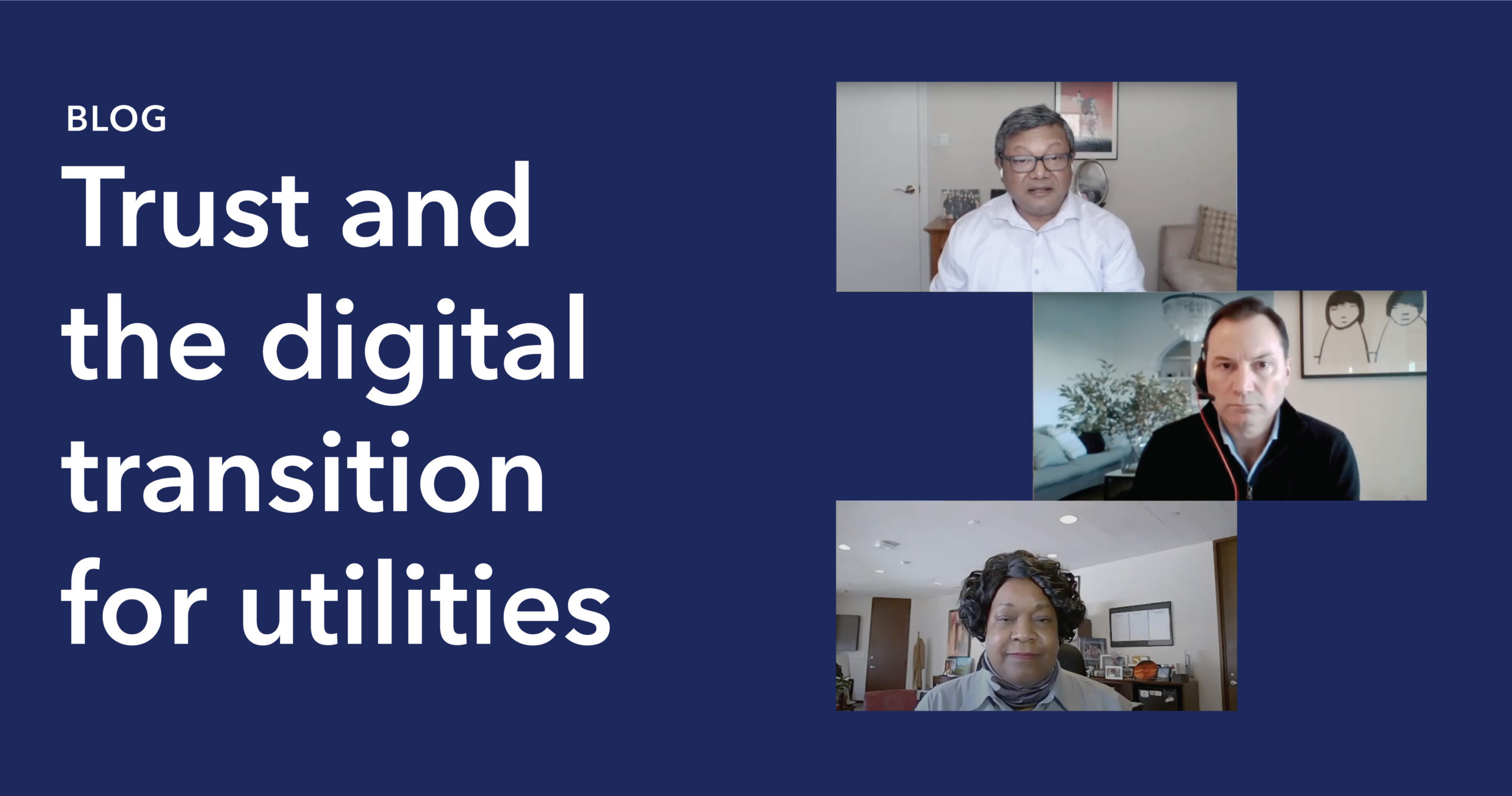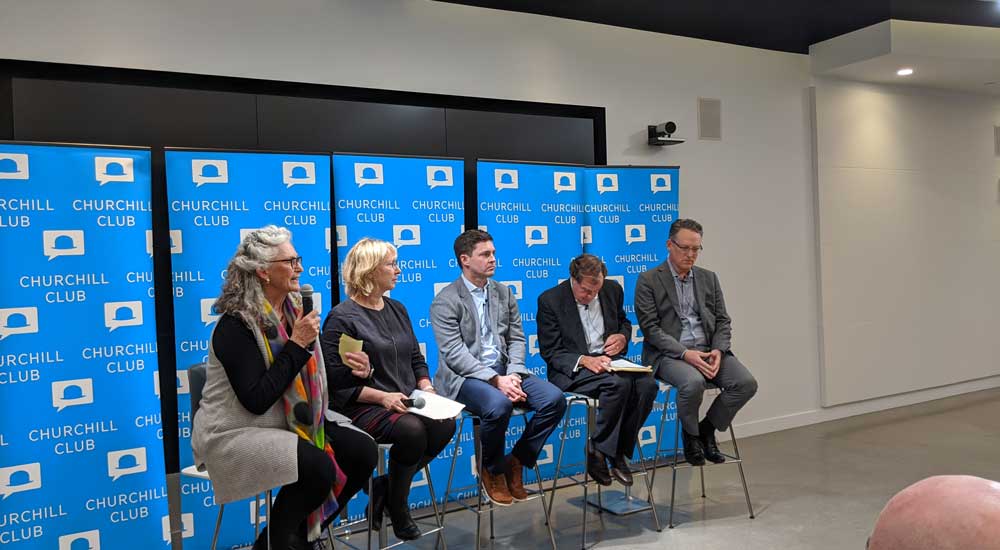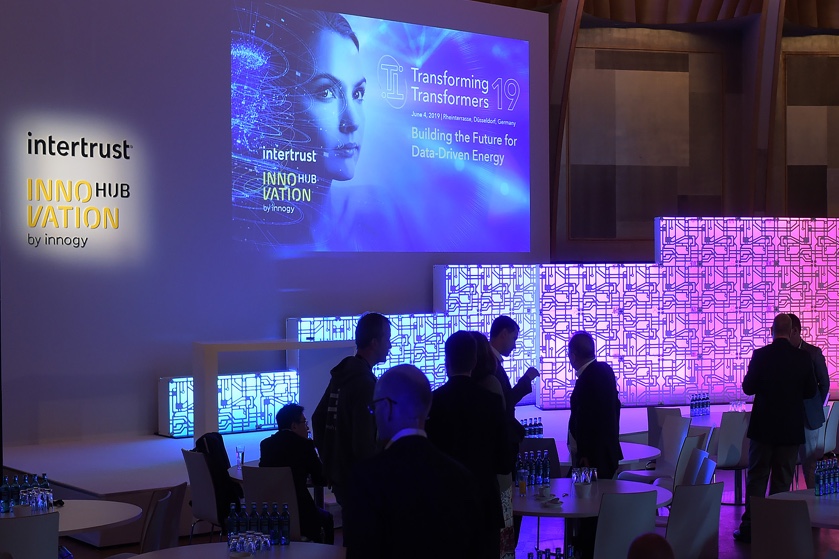A recent virtual event hosted by Stanford’s Precourt Institute for Energy featured Frank Calabria, CEO of Origin Energy in Australia and Paula Gold-Williams, President and CEO of CPS Energy in San Antonio, Texas. The two CEOs engaged in a wide-ranging discussion on a number of challenges and opportunities now facing energy utility companies, moderated by Precourt Institute for Energy co-director Arun Majumdar. Read on for some of their unique perspectives on the future of digital transformation for utility companies.
One topic of particular interest was the COVID-19 pandemic’s effect on the digital transformation of utility companies worldwide. Calabria noted, “I think this is going to be one of the most exciting opportunities that is going to emerge. I think those companies that can embrace both energy and data and bring those together—and the digitalization that flows from that—are those that will succeed going forward.” Calabria pointed to a number of trends impacting the digital transformation of utility companies, like increasing amounts of solar and wind and other distributed intermittent energy sources being combined with centralized energy generation. Add to the mix the fact that energy storage, including EVs, are added to distributed energy resources along with new opportunities to interact with connected home IoT devices will mean “we’re going to have power flows in multi-directions from both centralized energy and also through a distributed system.” Stir in the increased amount of data available from smart meters, “four data points in a year to 17,000,” and Calabria sees increased digitization as one of the larger trends being accelerated by the crisis, “and one most connected to our customers.”
Increasing Reliance on Digital Technologies
In a world where consumers increasingly rely on digital technologies, Calabria said that Origin’s customers were already on their way to using digital technologies for improved customer experiences and cost benefits. “As this comes together, I believe it will convert into products and services and then to business models,” Calabria noted. He predicted that the companies that can develop the ecosystems that allow them to control the huge number of devices connected to their networks will end up being the most successful. Calabria also emphasized that customer trust is one of the cornerstones to success in this new era, saying that trust was essential for customers to allow this sort of direct management of devices. While Origin already operates demand management and VPP (virtual power plant) services, Calabria sees extending these into simple, easy-to-understand services for home customers as the next opportunity. Accordingly, he brought up the ability to engage in proper corporate citizenship, and the resulting trust this brings for customers, as a core corporate advantage and underpinning for these new services.
CPS’ Paula Gold-Williams strongly agreed with Calabria. Referring to Calabria’s emphasis on trust, she noted, “Critically, that will be part of our journey in trying to couple our traditional model with the evolution through utilizing technology.” She explained that CPS is increasing its reliance on technologies such as sensors in its core operations, which involves both partnerships with technology companies and the need for customer trust. Gold-Williams focused on data security as one way of gaining that trust, saying “One of our six pillars is the security around the grid and the data that goes around it.”
Working with Partners
Going forward, Calabria sees great potential in demand management and demand response programs for both industrial and consumer customers where the utility manages the services. He noted, “We have been working with a number of partners across both the U.S. and the UK in that respect and we’ve established that AI (artificial intelligence) powered demand response programs will have increasingly more and more devices attached to it (sic).” He mentioned OhmConnect, a Silicon Valley based company that gamifies demand response, as one of Origin’s partners.Calabria also talked about the work the company does around managing security with partners, such as another Silicon Valley-based company, Intertrust. “We’ll definitely continue those programs; I continue to come back to trust,” Calabria concluded.



